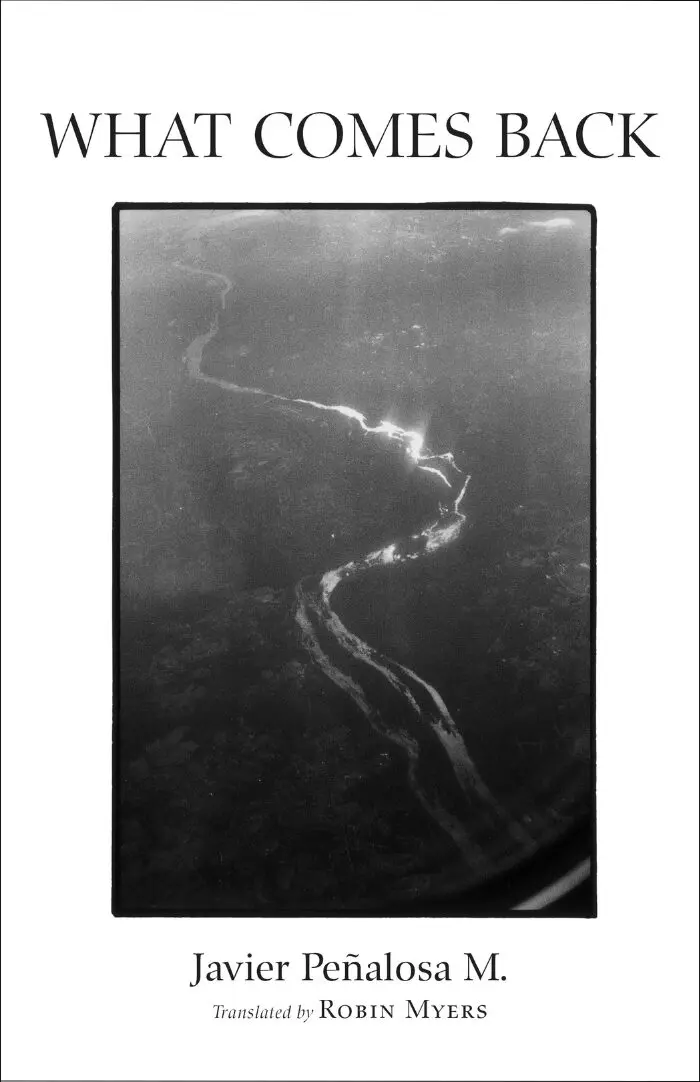Sometimes I like to read the English word translate with Spanish phonetics.
Like this: trans-lah-teh.
I like it, first and foremost, because it allows me to imagine—or, rather, to make up—a new etymology. For me, translate does not mean, following the Latin root abbreviated in the English, to move from one place to another, or from one side to the other (translatus). Instead, it means to move something with a heartbeat—algo que late, in Spanish—or to carry that which has a heartbeat somewhere else.
In the case of literature, and poetry in particular, the heartbeat lies in the words. Or, perhaps, the heartbeat lies in what’s behind said words: a person. Someone with a heartbeat. And someone who, in an act that demands as much hard work as it does magic, manages to arrange their words such that they come to life with a heartbeat of their own.
I suggest this nonexistent etymology and its relationship to poetry as a somewhat devious way to say that, more than traducir, what Robin Myers does is translatir—she does not so much “translate” as she “transpounds.” She carries a heartbeat from another language to her own, a living pulse encoded in words (I say “language” instead of “idiom” because I think there is something in poetry that can only be grasped through the grammar of the body, and trying to understand poetry as something foreign to the body’s experience seems practically impossible to me). Robin’s work with this matter of language is unique and astonishing, whichever way you look at it. Not only does she have extraordinary technical skill; equally extraordinary are her sensitivity and her ability to empathize, to write with the other’s hand while remaining herself. I also believe her work cannot yet be fairly appreciated today; many years will pass before we can discern the scope and influence of her achievements. One need only think how hard it would be, from the English-speaking world, to conceive of the panorama of recent Hispano-American literature without mentioning Robin’s name.
Besides all this, which is already a great deal, readers are lucky enough to have Robin’s own work as a poet, which is not disconnected from her work as a translator, but speaks for itself and shines on its own. Personally, I deeply admire her poetry, which has the power, with a kind-hearted gaze, to draw connections between the events, people, and things of this world. Actually… More than drawing connections, I believe her poetry draws kinships, creating a bond of family, of blood, of closeness and warmth between the things she names. In that power to draw kinships through poetry, I also feel something like a Franciscan spirit in Robin’s work, in the sense that she finds majesty through the small. Hers is a poetry that does not mean to assure us of anything, that doesn’t want to convince us, but rather believes in doubt, and in said doubt finds its faith; its little faith, which is a lot. A word that relinquishes all ostentation and thus becomes all the grander and all the richer. Just like herself, Robin’s poetry is profoundly generous, hides nothing, and presents itself just as it is. When you read it, you feel—or, at least, I do—you’re witnessing an act of love in which language and the self have placed themselves at the service of something bigger that comes through, with its own heartbeat, in her poems. For me, Robin is a guide in not only literary but also personal terms. Her integrity and generosity are among those lights that help us illuminate what little faith we hold on to ourselves.
I hope, in these words, you can feel the heartbeat of my humble and sincere gratitude for her.
Translated by Arthur Malcolm Dixon




